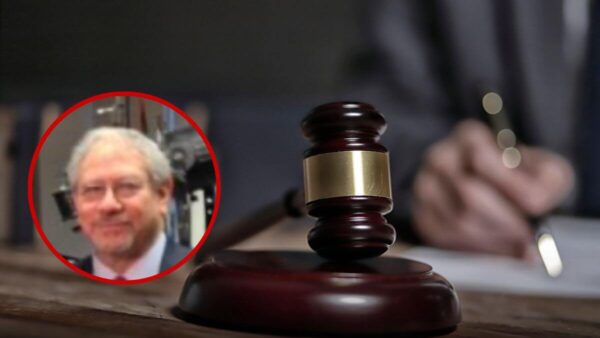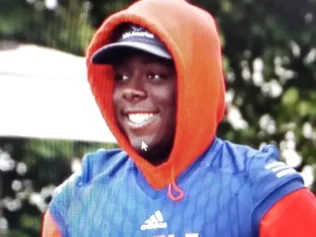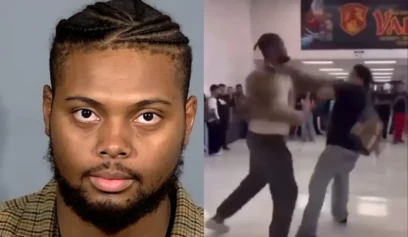A long-serving prosecutor in Miami has stepped down after a judge found evidence that state investigators tampered with witnesses in a death penalty case against a gang leader who was sentenced to death for a quadruple murder two decades ago.
Michael Von Zamft, who prosecuted numerous high-profile criminal cases in Miami’s 11th Judicial Circuit for nearly three decades, allegedly granted special privileges such as conjugal visits to jailhouse informants in exchange for their testimony.
The veteran prosecutor resigned this week after Miami-Dade County Circuit Judge Andrea Ricker Wolfson disqualified him and another prosecutor, Stephen Mitchell, from the resentencing trial of convicted murderer Corey Smith, the former boss of Liberty City’s John Doe gang, which plied Miami’s predominantly Black neighborhoods with crack cocaine throughout the late 1990s.

Wolfson made the stunning ruling following a lengthy hearing in which Smith’s defense team presented new evidence in an attempt to secure a new trial for Smith and remove the Miami-Dade State Attorney’s Office from the case due to “egregious misconduct.”
Witnesses claimed they were regularly given food, drinks, and cigarettes, as well as private visits with sexual partners, court documents said.
At least one witness had a sentence reduced in exchange for bogus testimony, the judge found.
“During the hearing, it became apparent there was a serious issue regarding possible witness testimony manipulation by the Assistant State Attorneys on this case — not only in the past, but also in the present,” Wolfson said, according to The Miami Herald.
Mitchell was dismissed from the case because he argued that there had been no unethical conduct, suggesting that he shared Von Zamft’s “philosophy of winning at all costs,” the judge said.
Joshua Hubner, another state prosecutor who helped bring the case against Smith, resigned in February.
Despite the findings in the 15-page ruling, Wolfson rejected claims by Smith’s lawyers that there was a wider pattern of misconduct that should disqualify the State Attorney’s Office from continuing the prosecution against the convicted killer.
Defense attorneys also suggested that an untold number of other criminal cases were likely affected.
Still, Wolfson denied the motion to remove the State Attorney’s Office even though she discovered ample evidence of witness tampering and “severe recklessness” by the two prosecutors.
In light of the new findings, Wolfson could still vacate Smith’s convictions and grant a new trial, but so far, she has not indicated she would do that.
In 1999, Smith was convicted in federal court of drug and firearm charges.
A year later, a Miami-Dade grand jury indicted Smith and seven others on 17 counts related to organized crime.
Several years later, Smith was sent to death row following his 2004 conviction for the slayings of four people. At the time, the conviction was seen as a major triumph against gang activity in South Florida after extensive federal and state investigations.
During the trial, heavily armed guards protected the courtroom, and Smith was fitted each day with electroshock restraints around his waist to prevent him from escaping, reports said.
Smith was originally sentenced to death for two of the killings based on the recommendation of most of the jury members.
However, in 2017, a change in state law required a unanimous decision from the jury for death sentences in capital punishment cases. Because of this change, Smith’s death sentence was overturned, prompting new legal proceedings to officially convert Smith’s sentence to life in prison without parole.
Years later, inmates who served as informants in Smith’s case claimed they received special favors, such as conjugal visits, when they were brought to the Miami Police Department’s Homicide Unit to align their statements against Smith, the judge said.
The most serious accusations against Von Zamft surfaced from recordings of his conversations with an inmate, which were made in anticipation of Smith’s resentencing trial.
On the tapes, Von Zamft can be heard setting up meetings between several inmates in an effort to square their testimonies, while Smith’s lawyers were never told about the jailhouse meetings, as required by law in criminal prosecutions.
“The allegations in this claim are like a rabbit hole in Alice in Wonderland,” the judge wrote in the order. “The prosecutors in this case have lost sight of their responsibility, and justice demands their disqualification.”
The judge also called attention to a phone call from 2022 in which Von Zamft talked about dismissing a female witness whose version of events had changed over time, indicating that if the informant didn’t stick to her original story, Von Zamft would find a way to prevent her from taking the stand and would read her previous testimony in court himself.
“On television, Perry Mason, defense attorney extraordinaire, always managed to find the smoking gun at the end of every episode,” the judge wrote in reference to the call. “In real life, this happens very rarely. It happened here.”
Legal experts noted that the admonishment from the judge was rare and suggested that if defense lawyers had engaged in similar conduct, they would likely face obstruction charges, highlighting a disparity in consequences for misconduct.
Another prosecutor from the case, Bronwyn Miller, was later appointed as a judge in Miami-Dade County Court and currently serves on the Third District Court of Appeal in Florida.
Last week, State Attorney Katherine Fernandez Rundle said she accepted Von Zamft’s resignation after nearly 30 years of working together, while she reiterated her commitment to ensuring that all prosecutors in her office lawfully seek “truth and justice” with “honesty, integrity, and professionalism.”
It was unclear whether Rundle would impose any further disciplinary actions against the prosecutors or if she would refer the case to the Florida Bar.
“I will ask my top litigators to examine every aspect of this case and determine the best path forward,” Rundle said in a statement that also affirmed the death penalty conviction in Smith’s case. “We are also the voice of the murder victims who cannot speak for themselves.”


